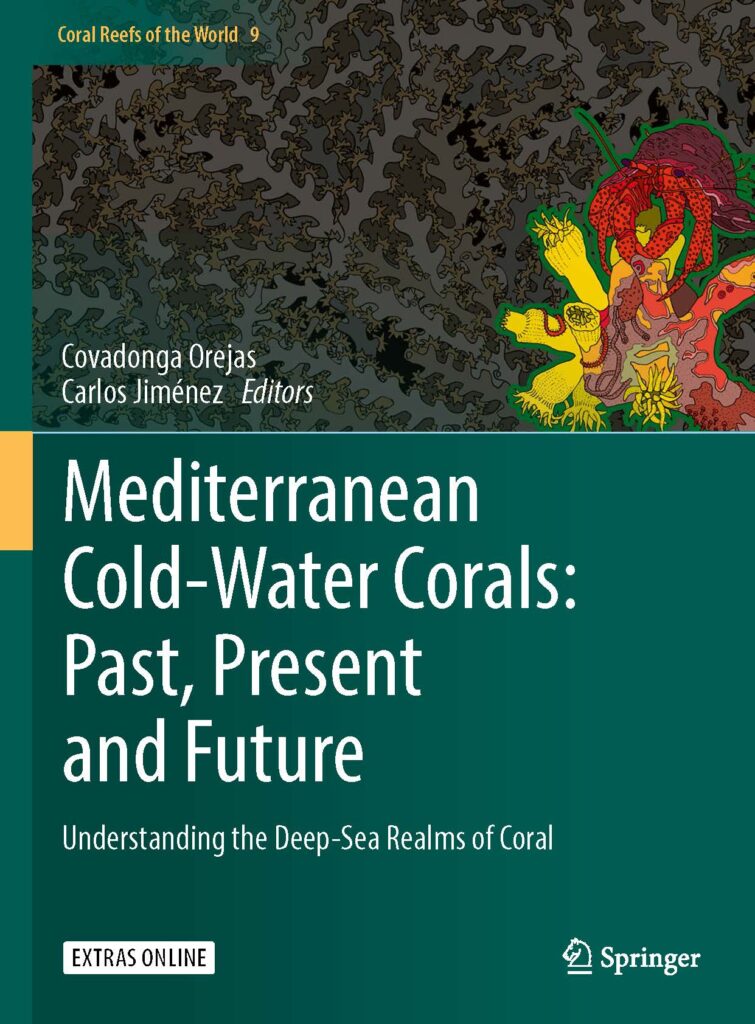Report | July 23, 2019
Cold-Water Coral Associated Fauna in the Mediterranean Sea and Adjacent Areas

Recent Discoveries of Extensive Cold-Water Coral Assemblages in Maltese Waters
Recent deep-water remotely operated vehicle surveys around the Maltese Islands resulted in the discovery of highly diverse habitats, including extensive hard bottom areas dominated by gorgonians and living cold-water corals with a rich variety of associated fauna. Black coral (Leiopathes glaberrima) forests were dominant at 200–400 m, whilst stony reef-forming corals (in particular Madrepora oculata) were most abundant in waters deeper than 500 m. The gorgonian Callogorgia verticillata was dominant in places over the entire depth range, but was particularly abundant at depths of 800–1000 m. Such cold-water coral assemblages are of high conservation interest, and offshore marine protected areas are urgently required in order to protect these very diverse, but highly vulnerable, deep-sea habitats.
Cold-Water Coral Associated Fauna in the Mediterranean Sea and Adjacent Areas
Cold-water corals are recognised as a key component of Mediterranean deep-sea ecosystems but the knowledge of their associated biodiversity is still limited. To date, the fauna associated to the Central Mediterranean cold-water coral habitats is the best known (e.g. the cold-water coral provinces of Santa Maria di Leuca, Bari canyon and Strait of Sicily) but such knowledge should be extended to the whole Mediterranean Basin.
The combined biodiversity censed so far for Mediterranean cold-water coral habitats and those of adjacent areas (Strait of Gibraltar-Gulf of Cádiz) includes a conspicuous number of species (ca. 520 spp.) with a high representation of sponges (ca. 90 spp.), polychaetes (ca. 90 spp.), cnidarians (ca. 80 spp.), bryozoans (ca. 75 spp.), crustaceans (ca. 60 spp.), molluscs (ca. 50 spp.), fishes (ca. 50 spp.), echinoderms (ca. 20 spp.) and brachiopods (7 spp.). Most species are not univocally linked to cold-water corals, but they benefit from the complex and diverse microhabitats provided by them. There is a clear need to continue the investigation of Mediterranean cold-water coral habitats to fully document the faunistic inventory, biogeographic connections and functions of the many species connected to such emblematic ecoystems of the deep-sea.
Conservation of Cold-Water Corals in the Mediterranean: Current Status and Future Prospects for Improvement
The Mediterranean deep-sea contains a mosaic of ecosystems and habitat types. Among them, cold-water corals provide shelter to a large and unique variety of organisms as well as ecosystem services. Scientific findings over the last decade have strengthened this fact and further supported the identification of cold-water corals habitats as sites of conservation interest and high vulnerability.
Given the semi-enclosed nature of the Mediterranean basin and the significant anthropogenic pressure on its ecosystems, most, cold-water corals species have been listed as threatened as they are found at areas which are frequently the focus of resource exploitation (e.g. deep-sea fisheries, oil and gas prospections among others) or are affected directly by other human activities (e.g. marine debris, pollution events) as well as by the increasing impacts of climate change including ocean acidification.
Nowadays, conservation and protection of such important species and ecosystems largely depend upon the proper development and implementation of marine policies. Here, we analyze the most important policy framework in place to protect these species in the Mediterranean Sea and we consider the most recent developments and opportunities for improving the situation. The management of cold-water corals involves important challenges. This is partly due to their remote location, limited political awareness, as well as incomplete information available on the occurrence, distribution and resilience of these cold-water coral species and their associated fauna, to impacts and disturbances. Specific actions are discussed to increase the protection of deep-sea ecosystems hosting cold-water corals through good governance and to establish effective area-based conservation measures to safeguard Mediterranean deep-sea biodiversity.
Oceana has contributed to the chapters 22 , 29 and 46 of the Mediterranean Cold-Water Corals: Past, Present and Future book

